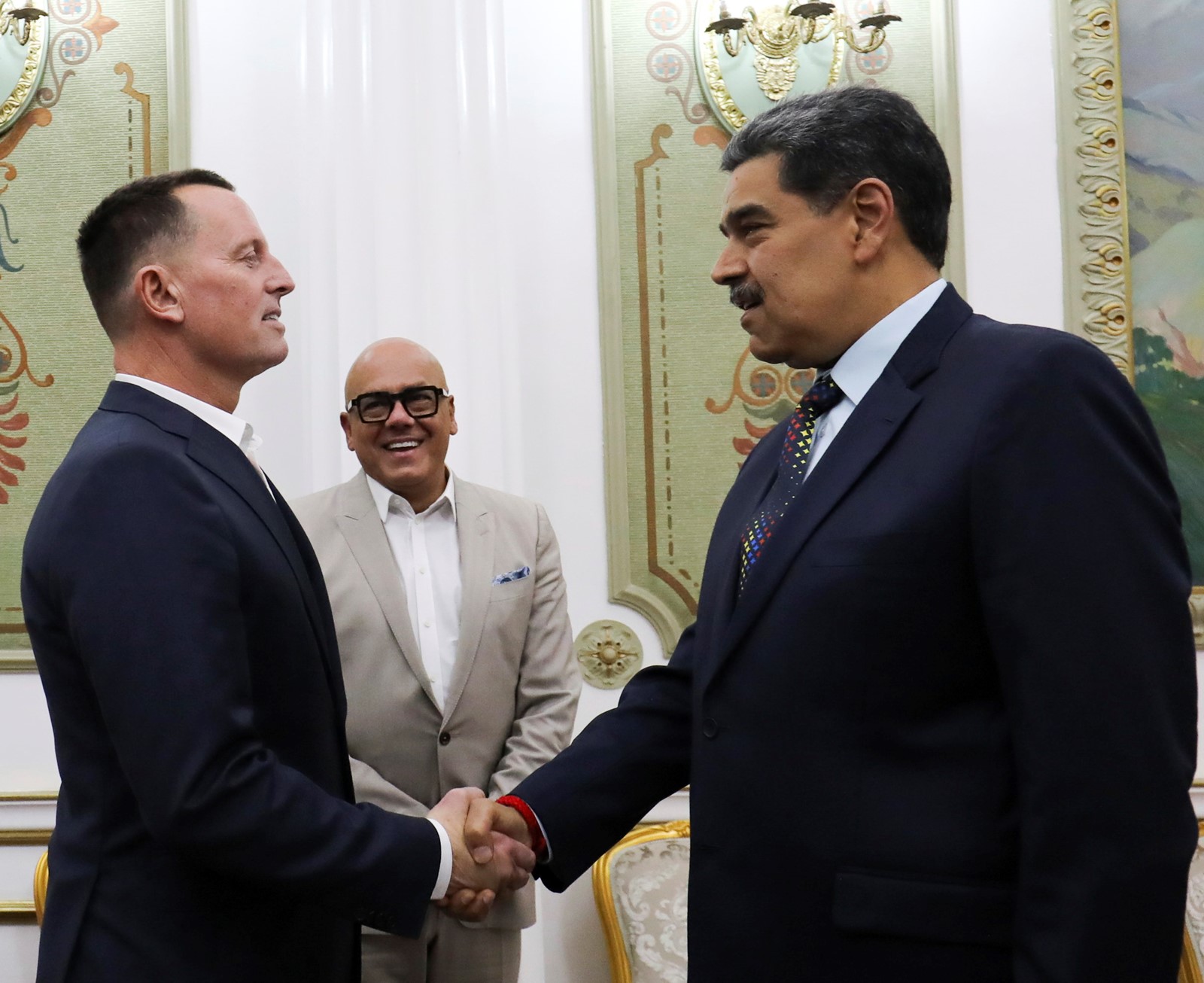
CARACAS, Venezuela — Six Americans who had been detained in Venezuela in recent months were freed by the government of President Nicolás Maduro after he met Friday with a Trump administration official tasked with urging the authoritarian leader to take back deported migrants who have committed crimes in the United States.
U.S. President Donald Trump and his envoy for special missions, Richard Grenell, announced the release of the six men on social media. The visit by Grenell came as a shock to many Venezuelans who hoped that Trump would continue the “maximum pressure” campaign he pursued against Maduro during his first term.
The trip focused on deporting Venezuelans and release of Americans
Grenell’s hours-long trip to Venezuela, according to the White House, was focused on Trump’s efforts to deport Venezuelans back to their home country, which currently does not accept them, and on the release of the detained Americans.
“We are wheels up and headed home with these 6 American citizens,” Grenell posted on X along with a photo showing him and the men aboard an aircraft. “They just spoke to @realDonaldTrump and they couldn’t stop thanking him.”
Trump wrote Saturday on his social media site Truth Social that he was happy to have the Americans back home.
“And very important to note, that Venezuela has agreed to receive, back into their Country, all Venezuela illegal aliens who were encamped in the U.S., including gang members of Tren de Aragua. Venezuela has further agreed to supply the transportation back,” he wrote.
“We are in the process of removing record numbers of illegal aliens from all Countries, and all Countries have agreed to accept these illegal aliens back.”
The press office of Venezuela’s government said Saturday it would not officially comment on the claims for now. The meeting came soon after Maduro was sworn in following controversial election
The meeting in Venezuela’s capital took place less than a month after Maduro was sworn in for a third six-year term despite credible evidence that he lost last year’s election. The U.S. government, along with several other Western nations, does not recognize Maduro’s claim to victory and instead points to tally sheets collected by the opposition coalition showing that its candidate, Edmundo González, won by a more than a two-to-one margin.
Venezuelan state television aired footage of Grenell and Maduro speaking in the Miraflores Palace and said the meeting had been requested by the U.S. government.
Signing an executive order in the Oval Office on Friday, Trump was asked if Grenell being filmed meeting with Maduro lent legitimacy to a government that the Trump White House does not officially recognize.
“No. We want to do something with Venezuela. I’ve been a very big opponent of Venezuela and Maduro,” Trump responded.
“They’ve treated us not so good, but they’ve treated, more importantly, the Venezuelan people, very badly.”
Maduro, appearing on state television after Grenell had left Venezuela, said the visit yielded “initial agreements” but did not provide any details.


 PREVIOUS ARTICLE
PREVIOUS ARTICLE
